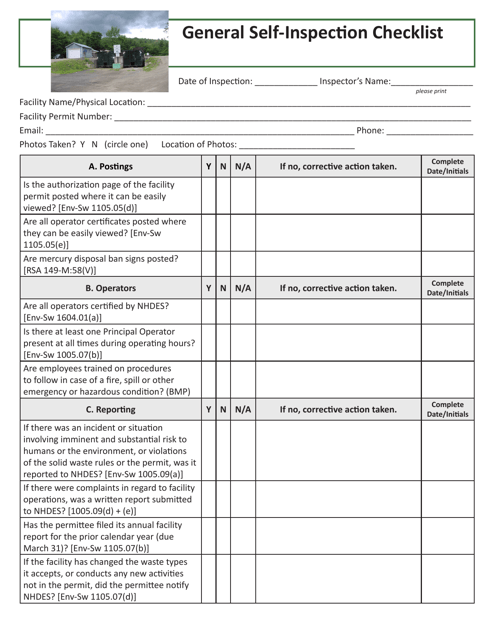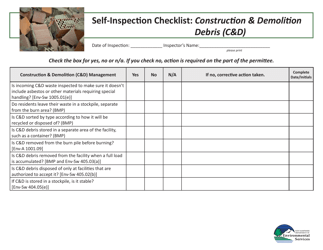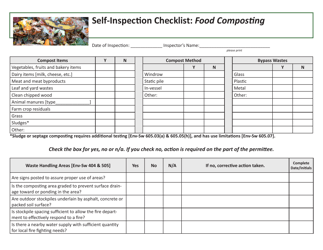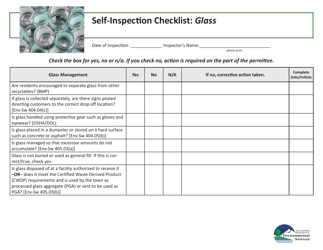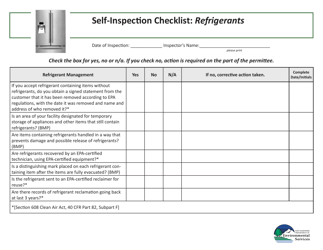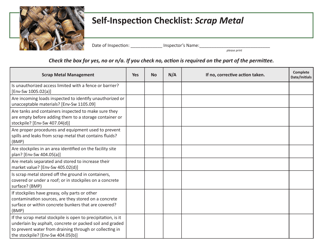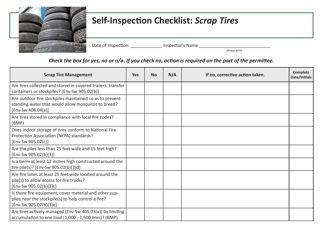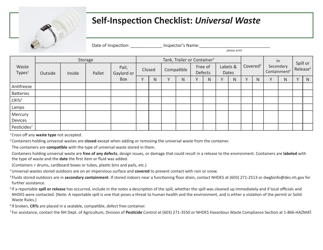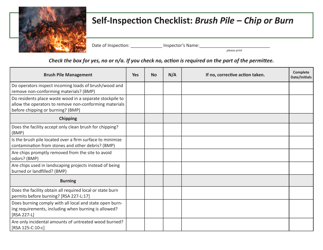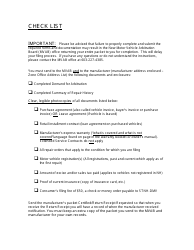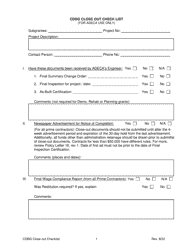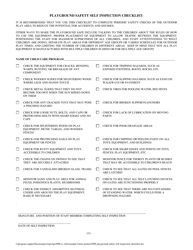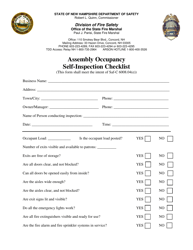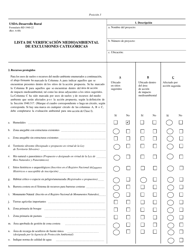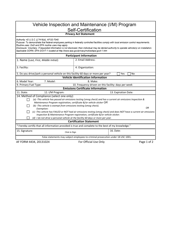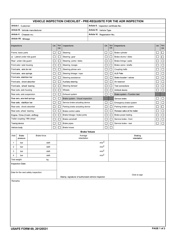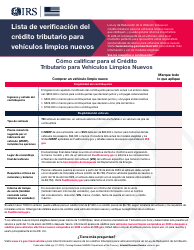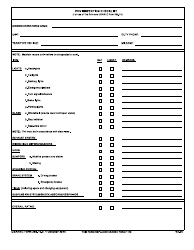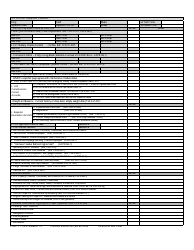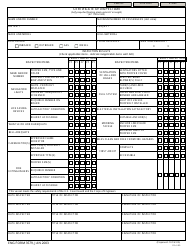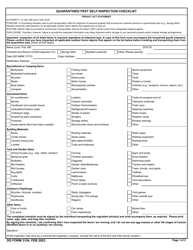General Self-inspection Checklist - New Hampshire
General Self-inspection Checklist is a legal document that was released by the New Hampshire Department of Environmental Services - a government authority operating within New Hampshire.
FAQ
Q: What is a self-inspection checklist?
A: A self-inspection checklist is a tool used to assess the condition and compliance of a property or premises.
Q: Why is self-inspection necessary?
A: Self-inspection is necessary to identify potential hazards or violations on a property and ensure compliance with regulations.
Q: Who can perform a self-inspection?
A: Anyone who owns or occupies a property can perform a self-inspection.
Q: What should be included in a self-inspection checklist?
A: A self-inspection checklist should include areas such as fire safety, electrical systems, plumbing, structural integrity, and other important considerations.
Q: Are there specific regulations for self-inspections in New Hampshire?
A: New Hampshire may have specific regulations or guidelines for self-inspections, which should be followed.
Q: What are some common areas to inspect in a property?
A: Common areas to inspect in a property include exits and entrances, fire extinguishers, smoke detectors, emergency lighting, electrical outlets, plumbing fixtures, and structural components.
Q: How often should self-inspections be conducted?
A: Self-inspections should be conducted regularly, as determined by local regulations or best practices.
Q: What should be done if issues or violations are found during a self-inspection?
A: If issues or violations are found during a self-inspection, they should be addressed and corrected in a timely manner.
Q: Is it recommended to hire a professional for property inspections?
A: In some cases, it may be recommended to hire a professional inspector for more thorough and specialized inspections.
Form Details:
- The latest edition currently provided by the New Hampshire Department of Environmental Services;
- Ready to use and print;
- Easy to customize;
- Compatible with most PDF-viewing applications;
- Fill out the form in our online filing application.
Download a printable version of the form by clicking the link below or browse more documents and templates provided by the New Hampshire Department of Environmental Services.
